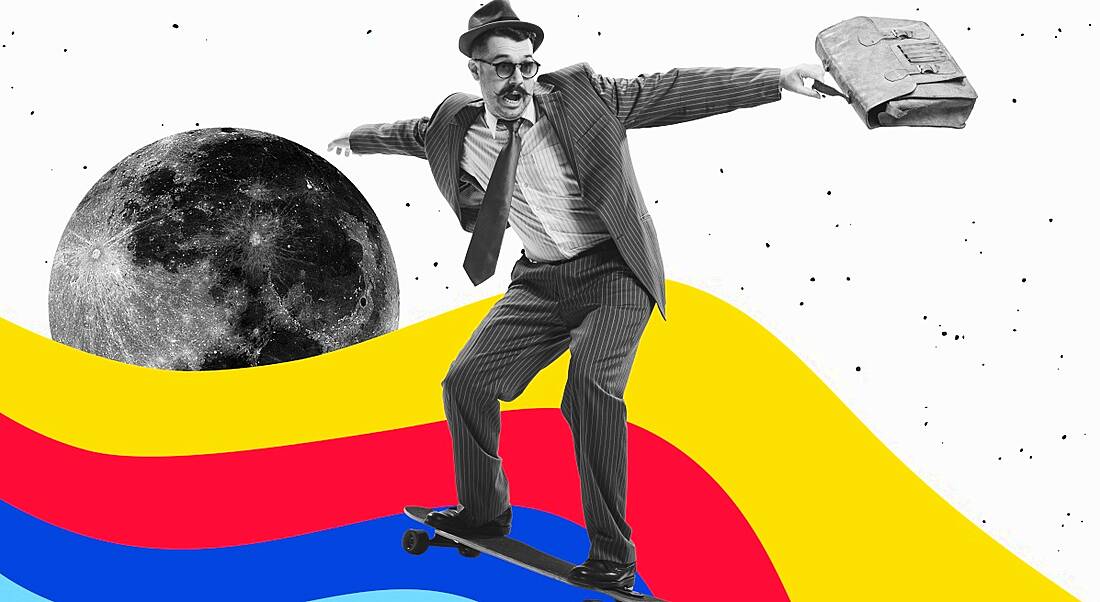These days, the phrase ‘flow state’ is bandied around as a fancy term for being productive. It can be a good approach, but it has the potential to be abused.
The phrase ‘flow state’ has been co-opted by Silicon Valley to mean productivity, but it’s actually a lot more than that. Being in ‘flow’ – also colloquially known as ‘the groove’ and ‘the zone’ – is conducive to productivity but it is more about enjoyment than meeting metrics, according to the guy who named it.
Intro to flow
It was initially coined by Hungarian psychologist Mihaly Csikszentmihalyi who theorised that ‘flow’ was a distinct frame of mind people can enter to be productive.
According to him, if a person is in a flow state they can devote themselves to one activity with a very single-minded focus, blocking out external factors such as noise, time and even the need to eat, drink and sleep.
Csikszentmihalyi said that there are certain characteristics of flow, and also certain ways to enter into a flow state. He only died a few years ago, so his work is still widely available, including a TED Talk and his seminal 1990 book Flow: The Psychology of Optimal Experience.
In that, he wrote flow is “a state in which people are so involved in an activity that nothing else seems to matter; the experience is so enjoyable that people will continue to do it even at great cost, for the sheer sake of doing it”. What we can surmise from that, is that flow is supposed to be good for your happiness levels. Csikszentmihalyi was interested in the flow state because of its impact on the happiness of people he observed experiencing it. He wasn’t a Silicon Valley bro, but his thinking has been co-opted by business people as a byword for productivity and ‘deep work’.
One of the main characteristics of flow is that whatever task you’re doing comes easy – or flows. You’re stimulated enough to be challenged, but not overly burdened by what you’re doing. Certain people experience flow easier than others – autotelics – or, people who do what they’re doing for the love of it rather than a specific end goal, find the flow state easier to achieve. So, while it can refer to work, it doesn’t exclusively.
Flow and flaws
The flow state can be great if you’re working on the cure for cancer or a new album, but not so great if you’re trying to get through to someone determined to get to the next level on a computer game or if your boss is feeding you mumbo-jumbo about ‘flow’ to make you overwork yourself. The flow state can be abused, to put it bluntly.
That said, people from all backgrounds and disciplines have adopted the concept of flow in one way or another. Independent athletes, artists, gamers and programmers all embrace flow when they need to. By Csikszentmihalyi’s definition, you can even experience ‘flow’ when mowing the lawn – although they wouldn’t like to hear that in Silicon Valley, I’d imagine.
How to get into the groove
If it sounds like ‘flow’ is beyond your concentration abilities, you can do a few things to help yourself get there. First of all, eliminate distractions. Leave your phone aside and anything else that’s likely to steal your attention. Secondly, plan time for yourself to be immersed fully in something. Don’t be haphazard about planning, otherwise, you’ll look selfish and immature if you get annoyed at somebody for interrupting your ‘flow state’. Don’t be that pretentious person.
It sounds counterintuitive to plan for flow, but it’s not. You can train yourself into it almost like a Pavlovian response by doing certain things to prep your environment beforehand – making a coffee, going for a walk, focus music, meditation, noise-cancelling headphones etc.
Flow for tech
While we were learning about flow, we came across a GitHub blogpost specifically for programmers and tech workers. It has a couple of tips on how to get into flow, which are broadly similar to what we’ve already mentioned. There are also some interesting insights into flow and its benefits from tech leaders. A particularly interesting quote on the creative nature of coding caught our attention.
“Software has historically been viewed as mathematical or scientific in nature, but I would argue that writing code has more in common with other creative acts,” said GitHub’s senior director of research, Idan Gazit. “Whether you’re writing an essay or writing a programme, the challenge is getting into the headspace where you can untangle the thing you want to express.”
If you look at coding as a creative act, the flow state makes sense. Just don’t abuse it and don’t let someone bully you into faking it when you’d rather just do your work and clock off.
Find out how emerging tech trends are transforming tomorrow with our new podcast, Future Human: The Series. Listen now on Spotify, on Apple or wherever you get your podcasts.




